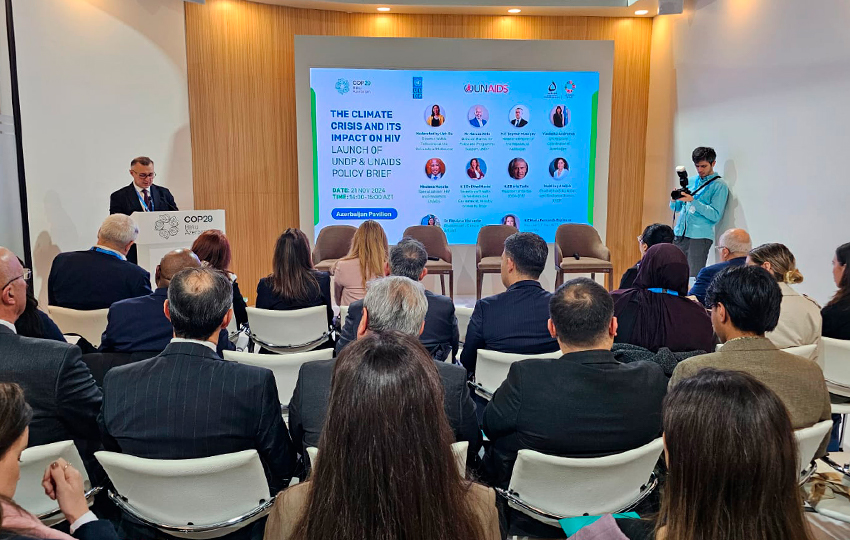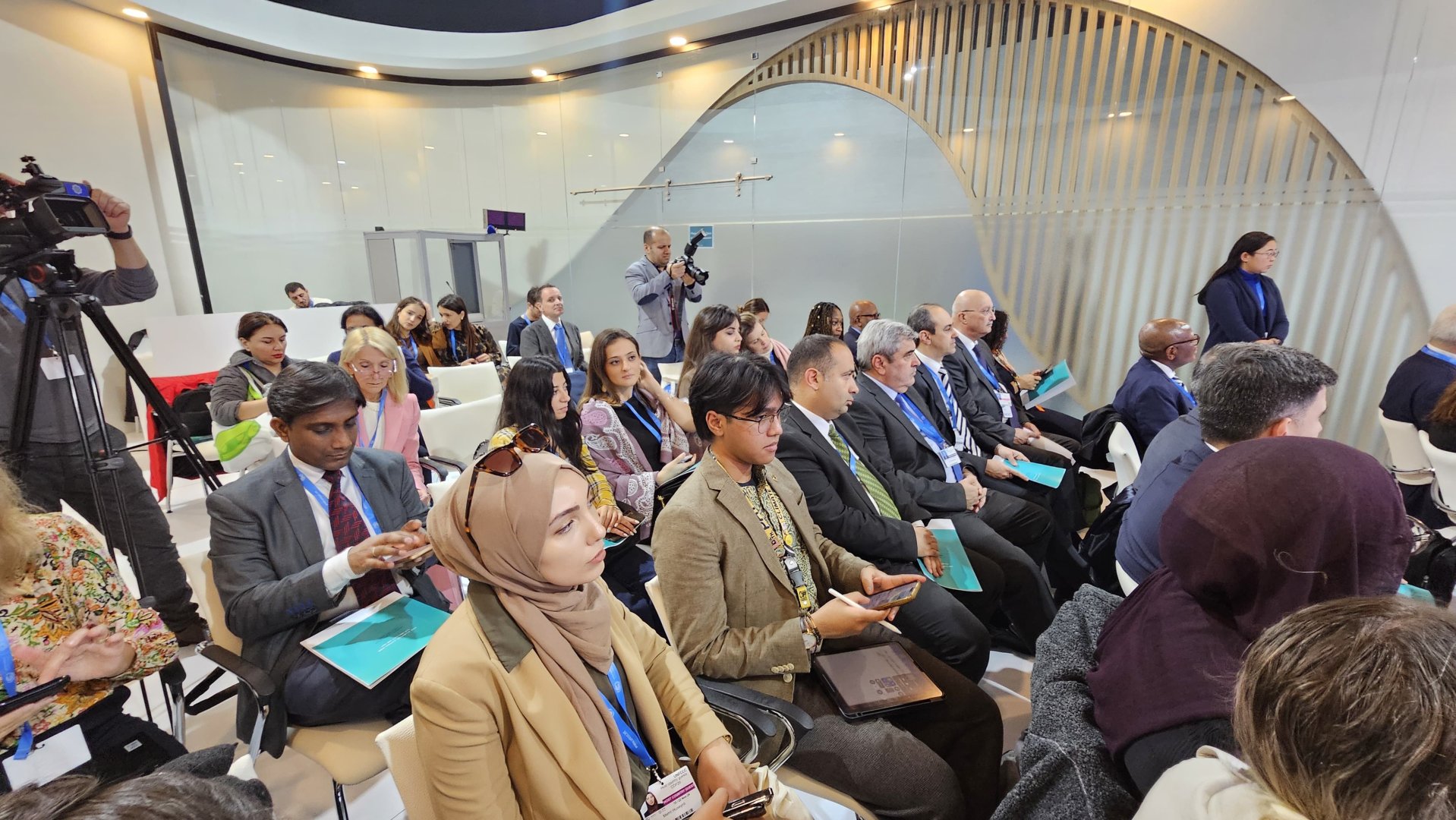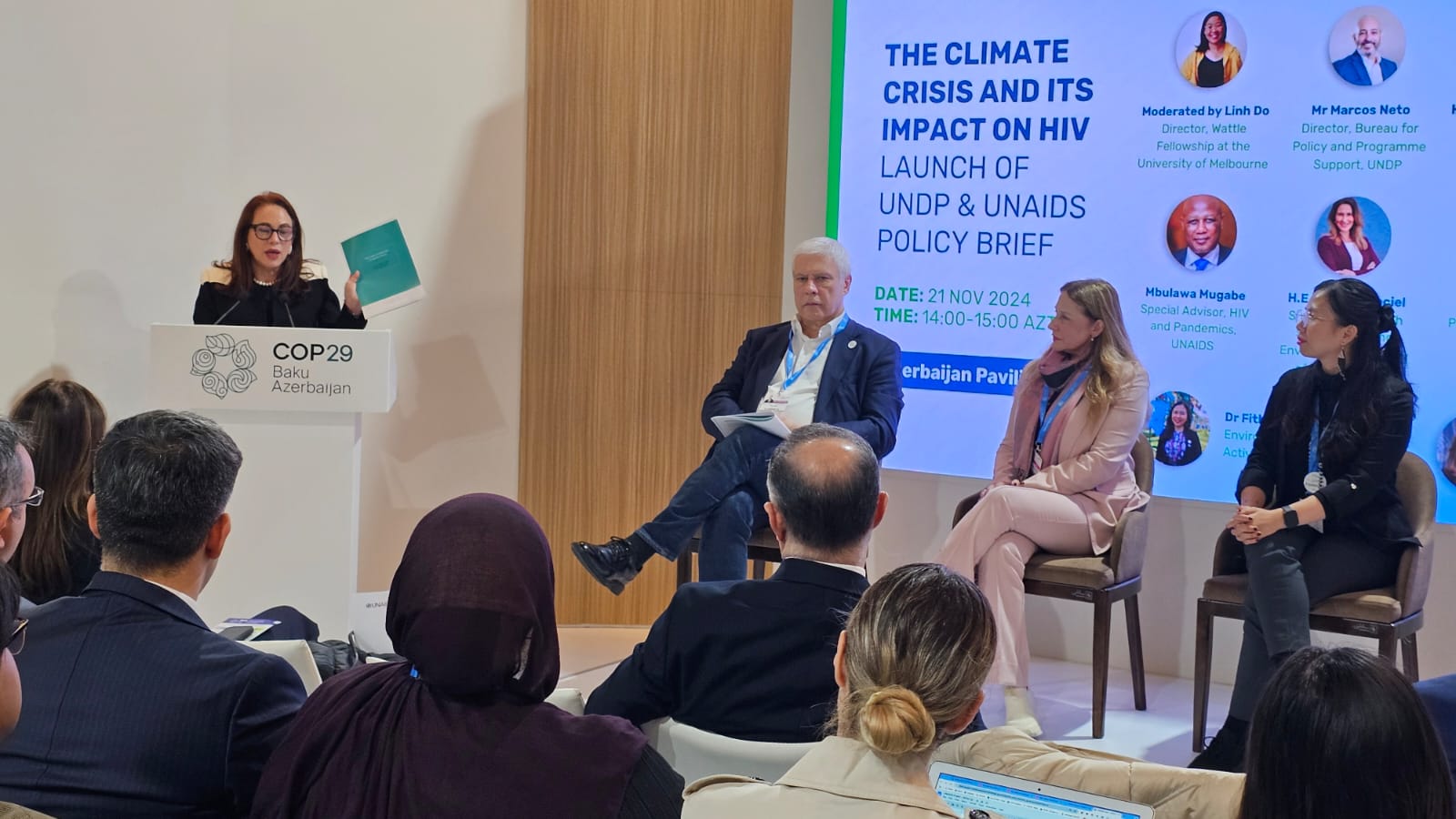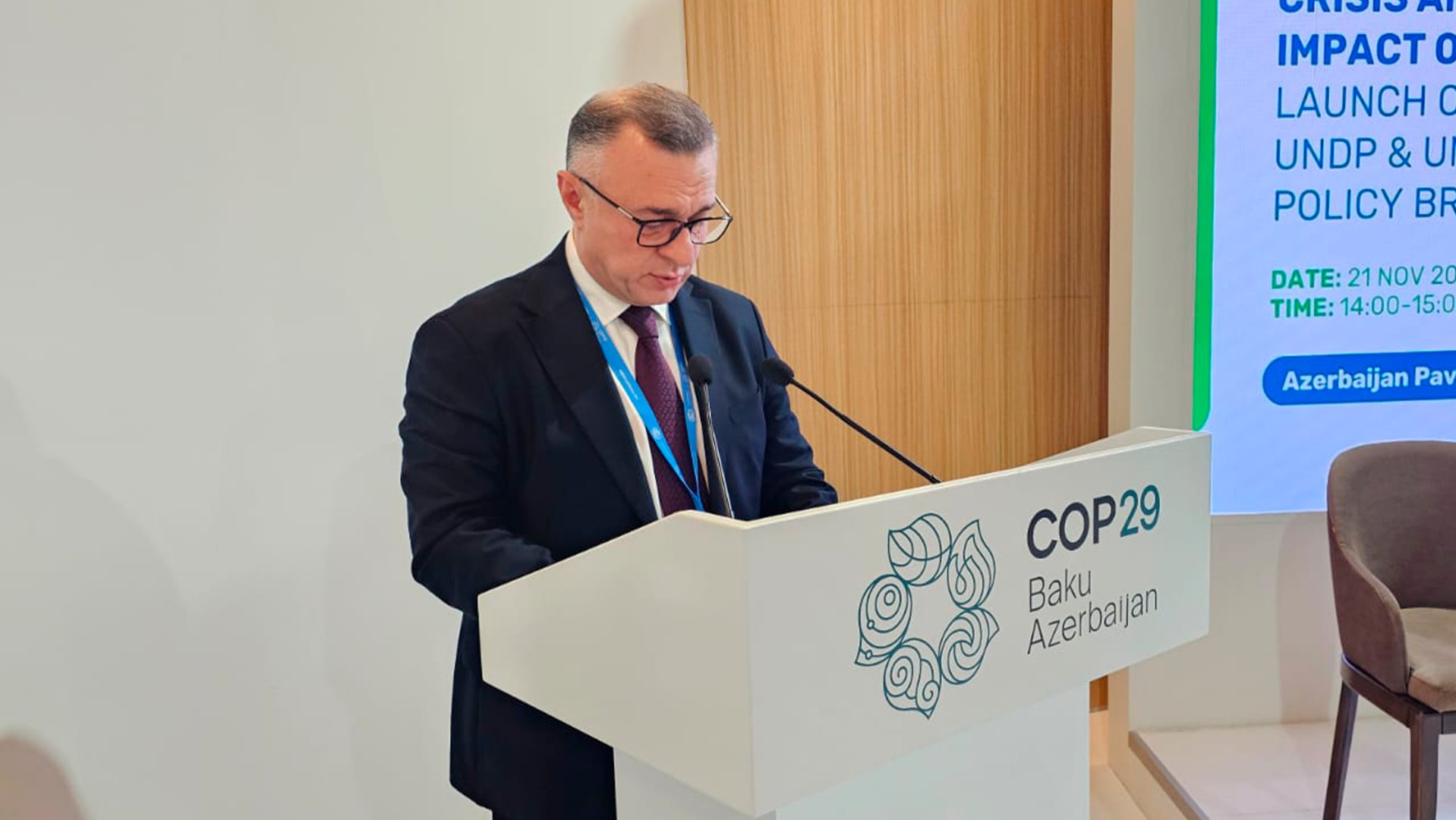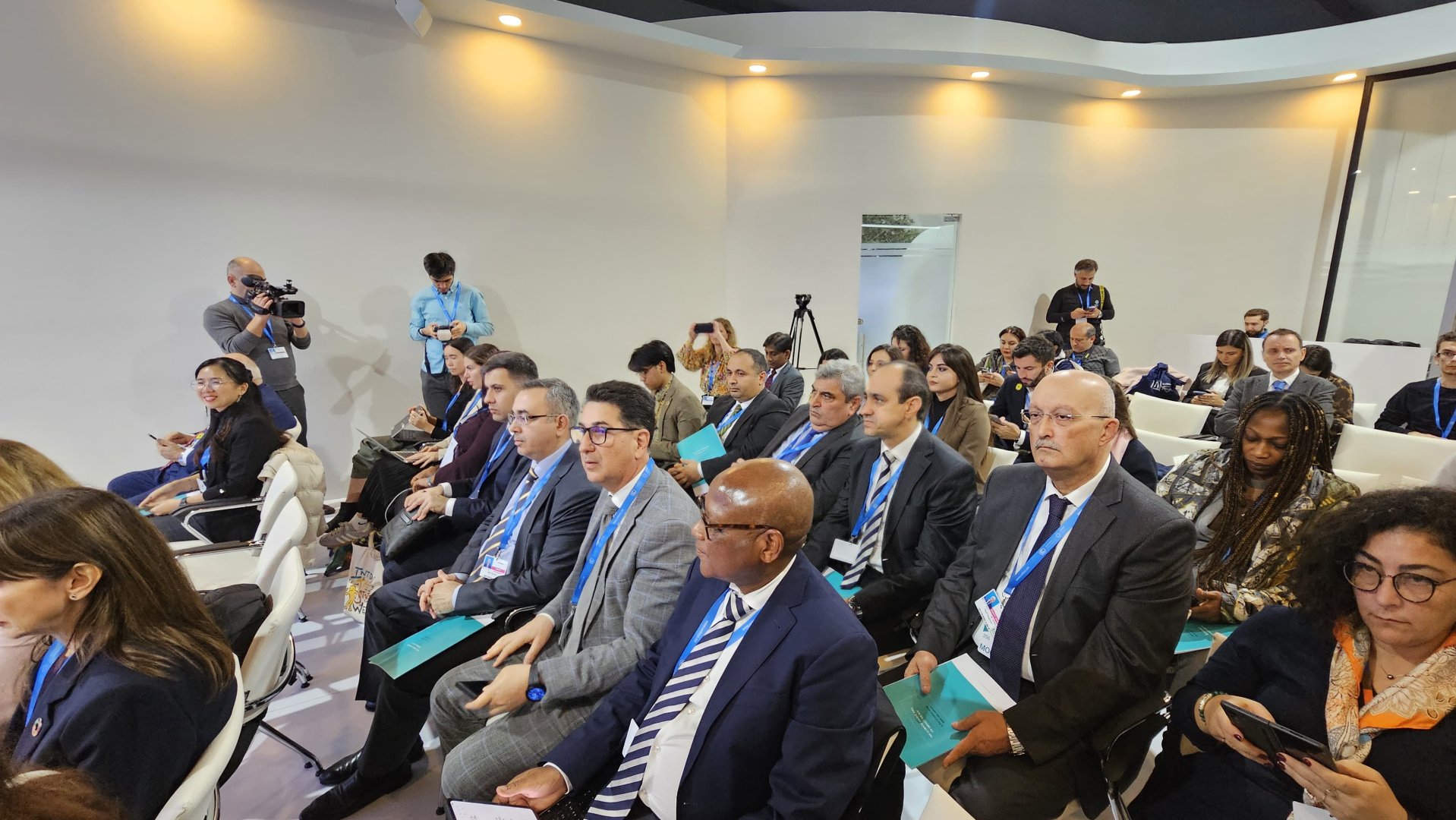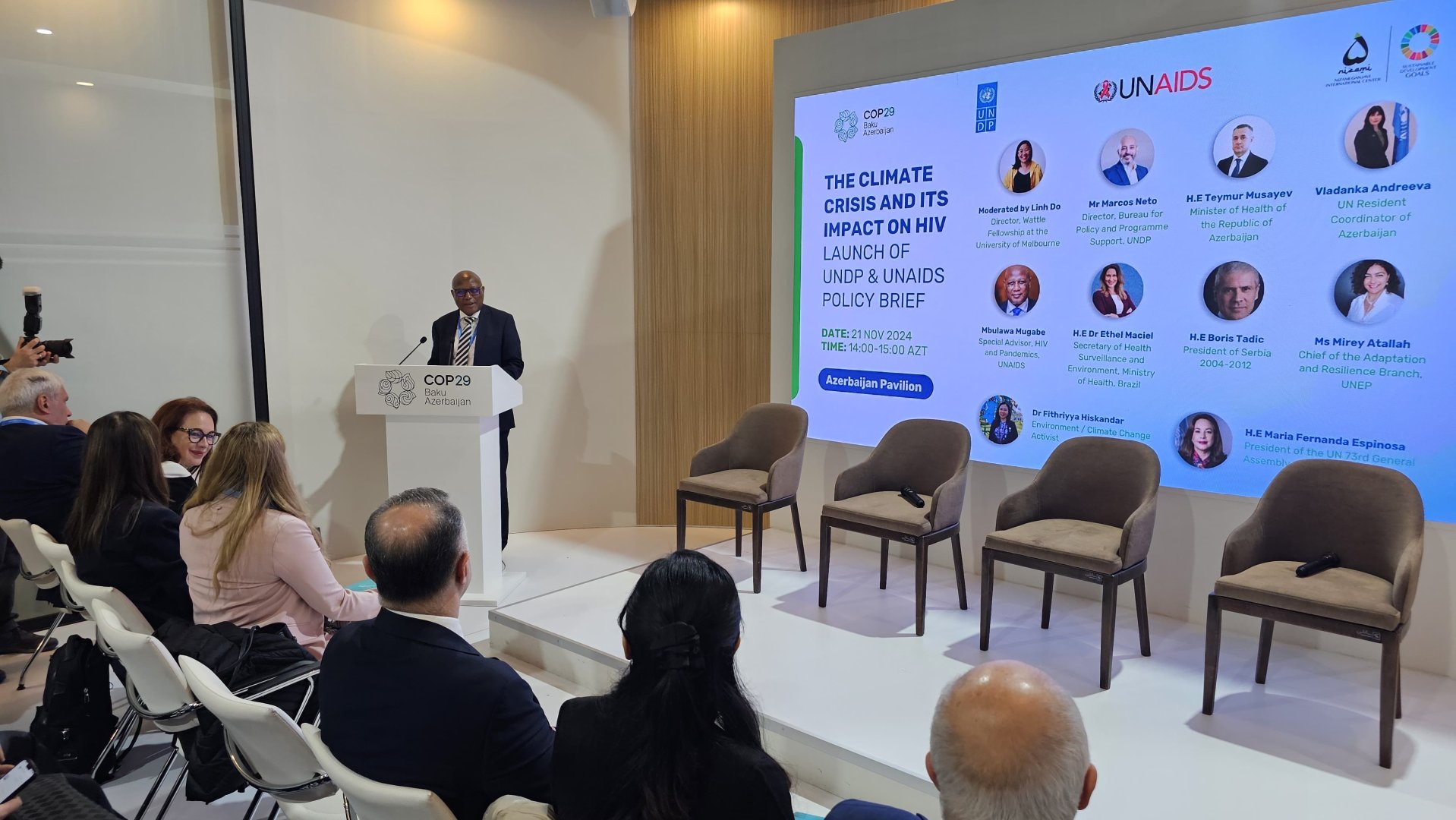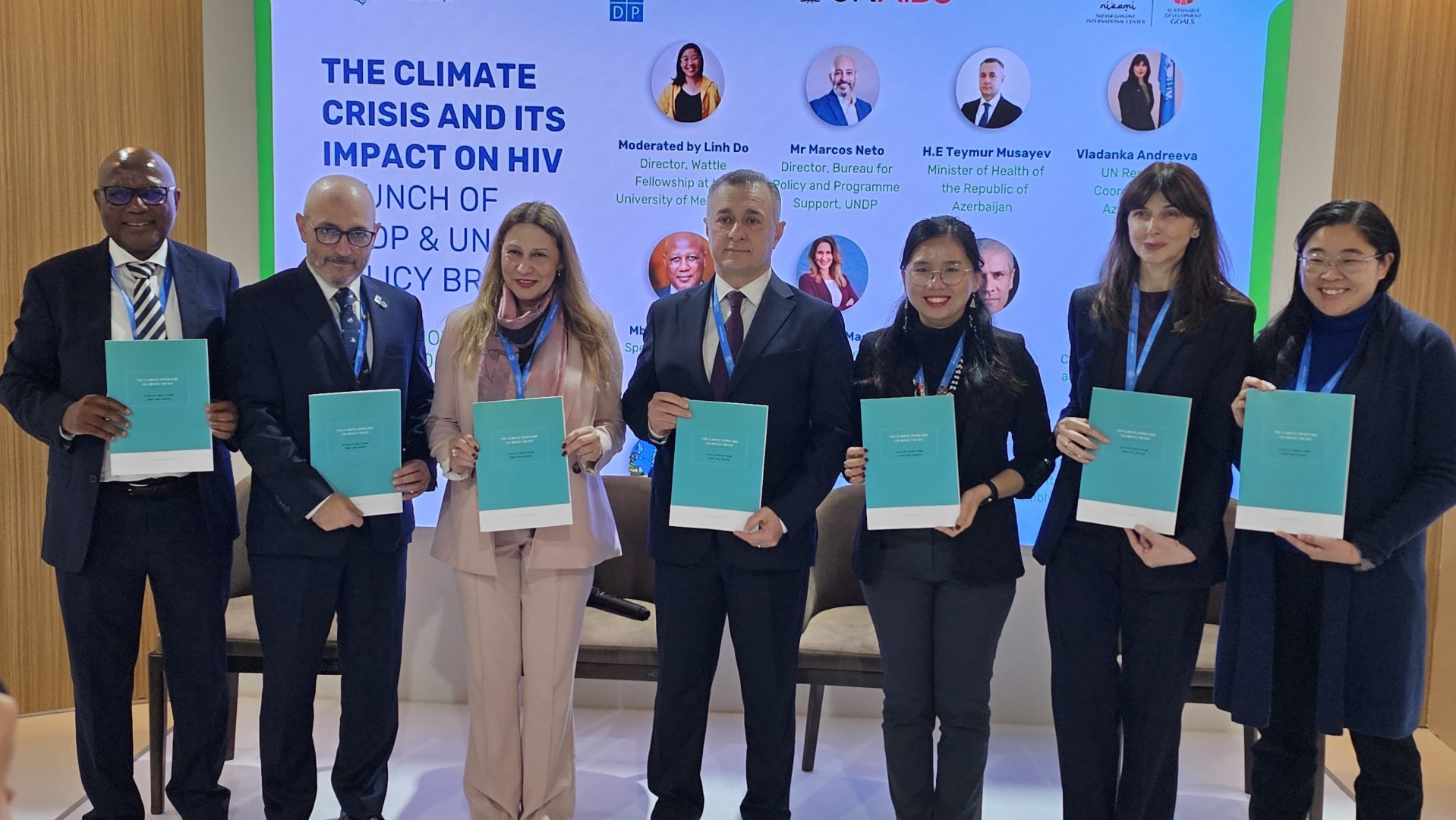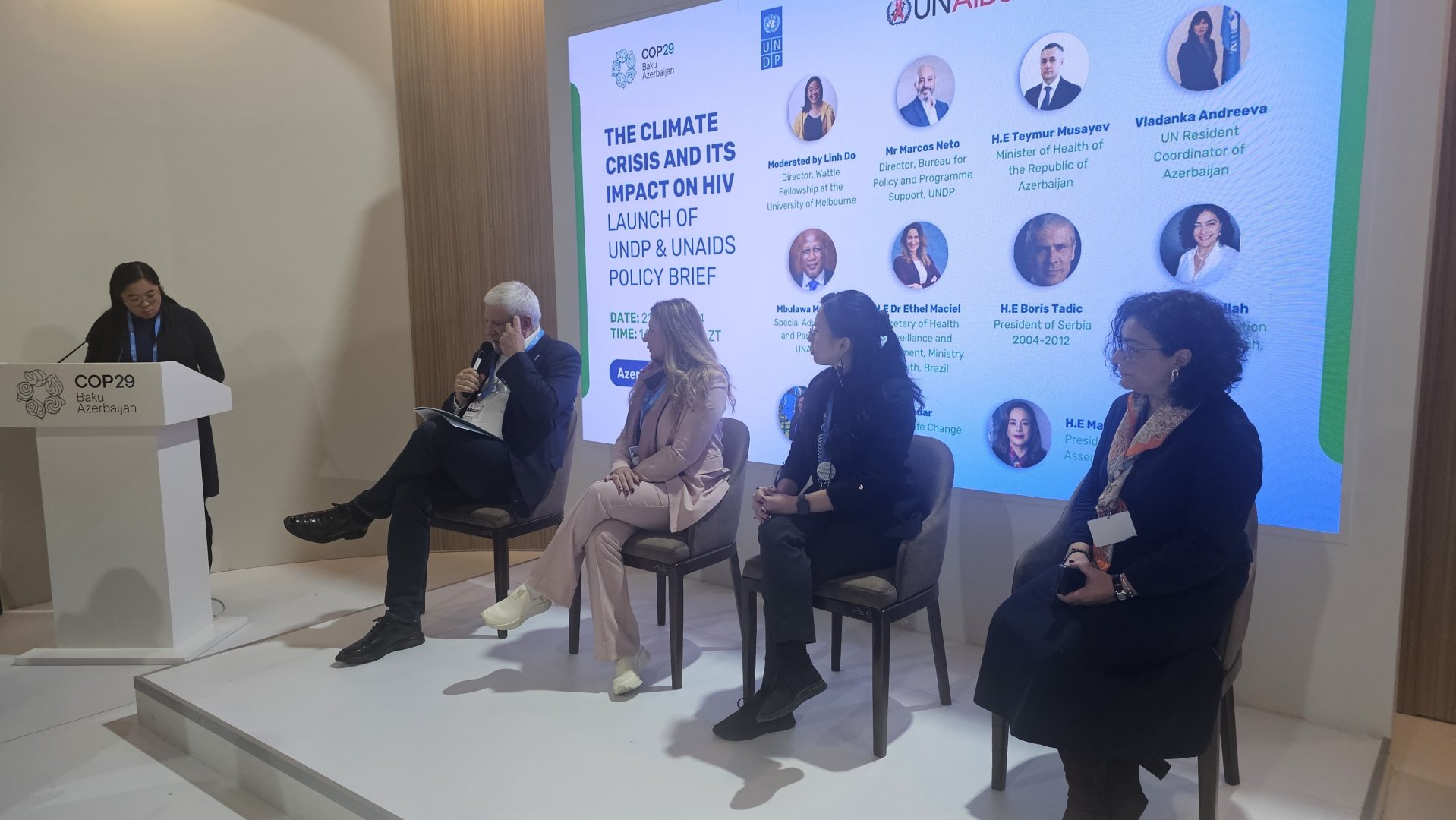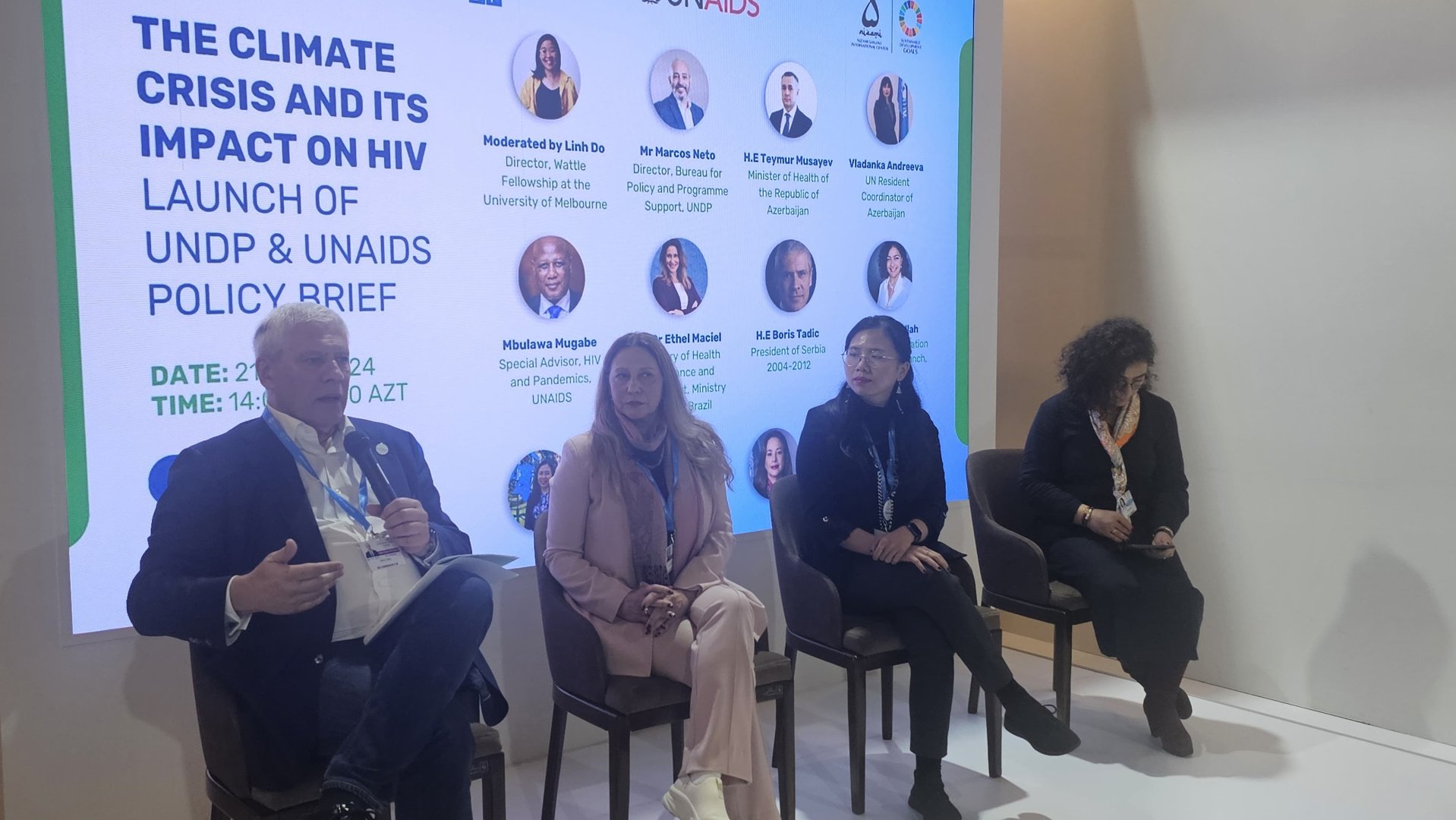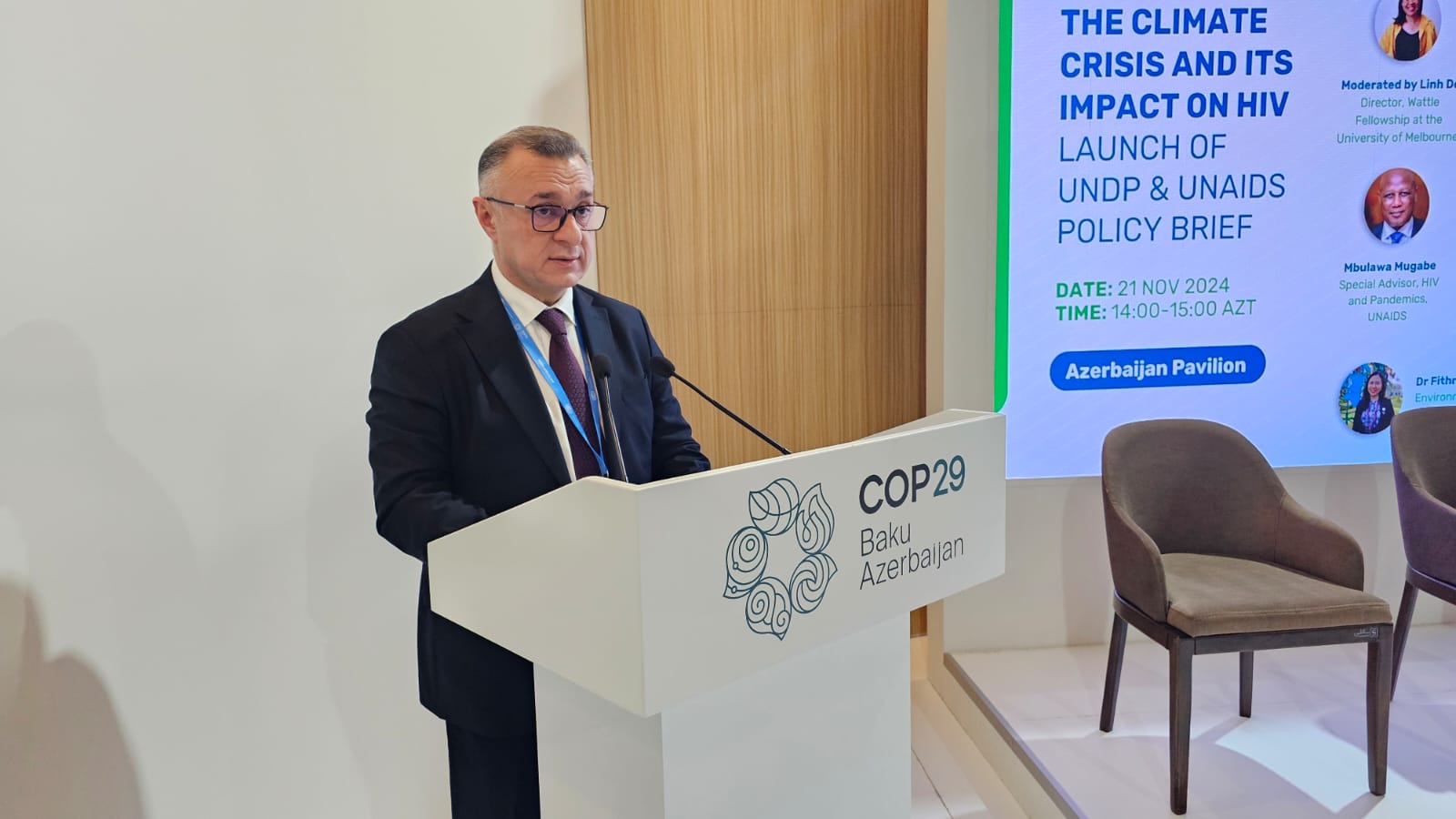BAKU, Azerbaijan, November 21. Azerbaijan's Health Minister Teymur Musayev delivered a speech during a presentation of the UNAIDS (Acquired Immunodeficiency Syndrome) Framework Document on HIV (Human Immunodeficiency Virus) and Climate Change at the 29th session of the Conference of the Parties (COP29) to the United Nations Framework Convention on Climate Change (UNFCCC), Trend reports via the Azerbaijani Health Ministry statement.
"The event was organized by the Nizami Ganjavi International Center and UNAIDS.
The event featured speeches by Marcos Neto, UN Assistant Secretary-General and Director of the Bureau for Policy and Programme Support at the United Nations Development Programme (UNDP); Vladanka Andreeva, UN Resident Coordinator in Azerbaijan; Minister of Health of Azerbaijan; Mbulawa Mugabe, UNAIDS Special Advisor on AIDS and Pandemics; and Etel Maciel, Secretary of Health Surveillance at the Ministry of Health of Brazil," the statement said.
The Azerbaijani minister emphasized that HIV remains one of the major global health challenges:
“Every year, more than one million people worldwide are infected with HIV, and over 600,000 people die from HIV-related illnesses,” he said.
Musayev highlighted the significant steps Azerbaijan has taken in combating HIV and the substantial progress achieved.
According to him, individuals living with HIV in Azerbaijan are provided with antiretroviral medications by the state.
“Azerbaijan has established strong partnerships with international organizations such as the World Health Organization (WHO) and the Global Fund. By the end of 2023, Azerbaijan achieved notable progress in reaching the global targets of the ‘89-80-93’ HIV testing and treatment cascade for people living with HIV, which ranks among the best in the region,” he said.
Reminding that climate change was a central topic of discussion at COP29, during which speakers repeatedly highlighted the disproportionate distribution of its impacts, Musayev pointed out that the countries most affected often contribute minimally to solving the global problem.
According to him, weather-related disasters, rising sea levels, changes in rainfall patterns, and average temperatures lead to population displacement, the spread of diseases, clean water shortages, food insecurity, and damage to healthcare infrastructure.
It was highlighted that evidence-based research confirms that such conditions exacerbate mental health problems, increase violence and child marriages, and promote substance abuse.
"Interruptions in healthcare delivery further limit access to HIV treatment, prevention, and mental health services. This ultimately leads to increased morbidity and mortality, particularly among vulnerable groups. The complex effects contribute to rising HIV rates and undermine decades of progress in combating the epidemic.
"At COP29 held in Baku, the international community has come together to address the global impacts of climate change. Among the existing challenges, its effects on health are the most significant. Mitigating the health impacts of climate change is a long and complex process.
However, the sooner we take the necessary steps, the sooner we will achieve success. Building climate-resilient healthcare systems and training the health workforce are crucial to achieving the Sustainable Development Goals, including ending the HIV epidemic.
Only through international solidarity, equitable resource distribution, and the exchange of knowledge and best practices can we create a climate-resilient society where health challenges are addressed and the protection of public health is ensured," concluded the minister.
The event continued with panel discussions.
To note, the 29th session of the Conference of the Parties to the UN Framework Convention on Climate Change (COP29), which will run until November 22, opened at the Baku Olympic Stadium on November 11. It is the largest event organized by Azerbaijan to date and the first time in the region that it is being held in Azerbaijan.
Within COP29, the highest-level event - the summit of world leaders on climate action - was held on November 12–13.
The main expectation from COP29 is to agree on a fair and ambitious New Collective Quantitative Goal (NCQG) on climate finance. The COP29 chairmanship has launched 14 initiatives that include linkages between climate action and the Sustainable Development Goals, including green energy corridors, green energy storage, harmony for climate resilience, clean hydrogen, methane reduction in organic waste, action on green digital technologies, and other topics.
In addition to being a top priority that creates the conditions for action, creating climate finance will also help fulfill the 1.5°C pledge by bringing everyone together.
The UN Framework Convention on Climate Change is an agreement signed at the Rio Earth Summit in June 1992 to prevent dangerous human interference in the climate system. The acronym COP (Conference of Parties) stands for “Conference of Parties” and is the highest legislative body overseeing the implementation of the Framework Convention on Climate Change.
A total of 198 countries are parties to the Convention. Unless otherwise decided by the parties, COP is held annually. The first COP event was held in March 1995 in Berlin, and its secretariat is located in Bonn.
Stay up-to-date with more news on Trend News Agency's WhatsApp channel

